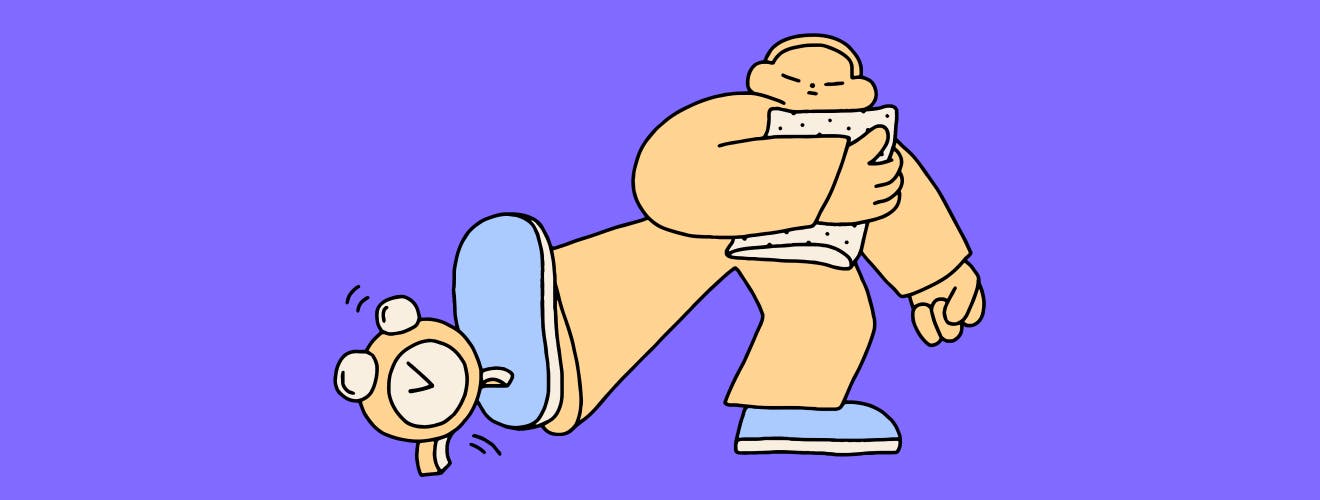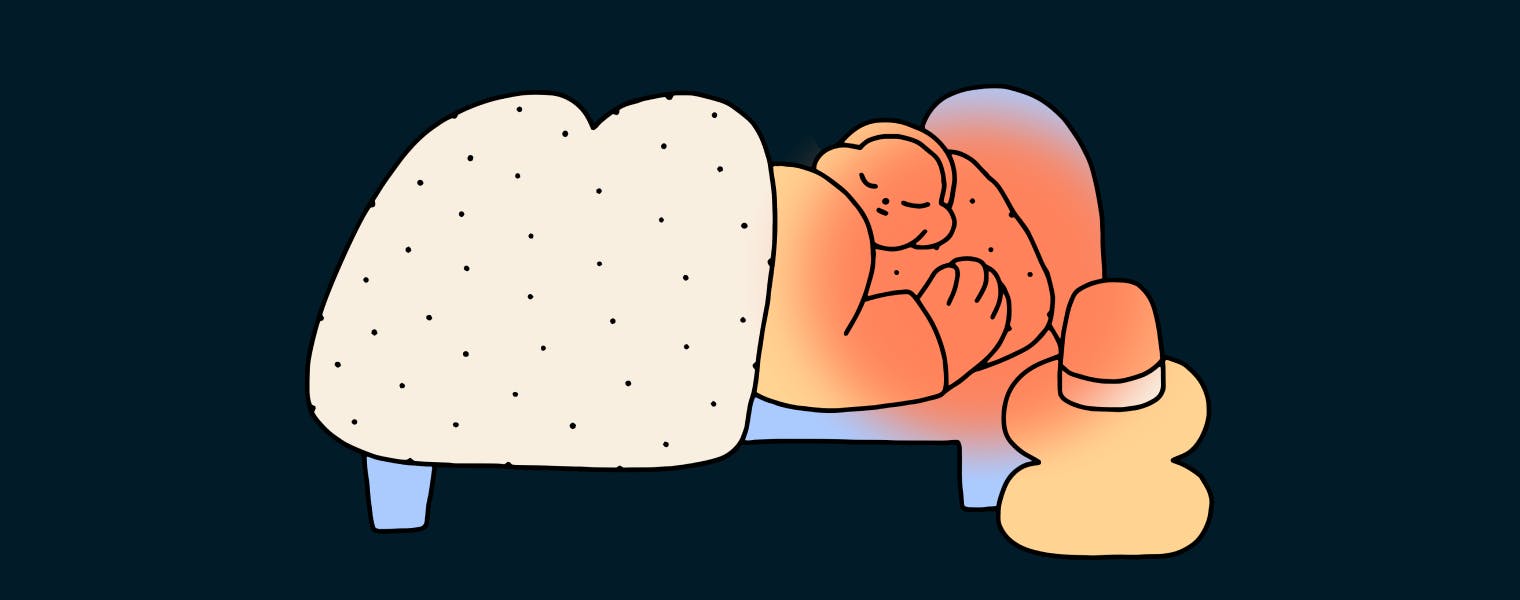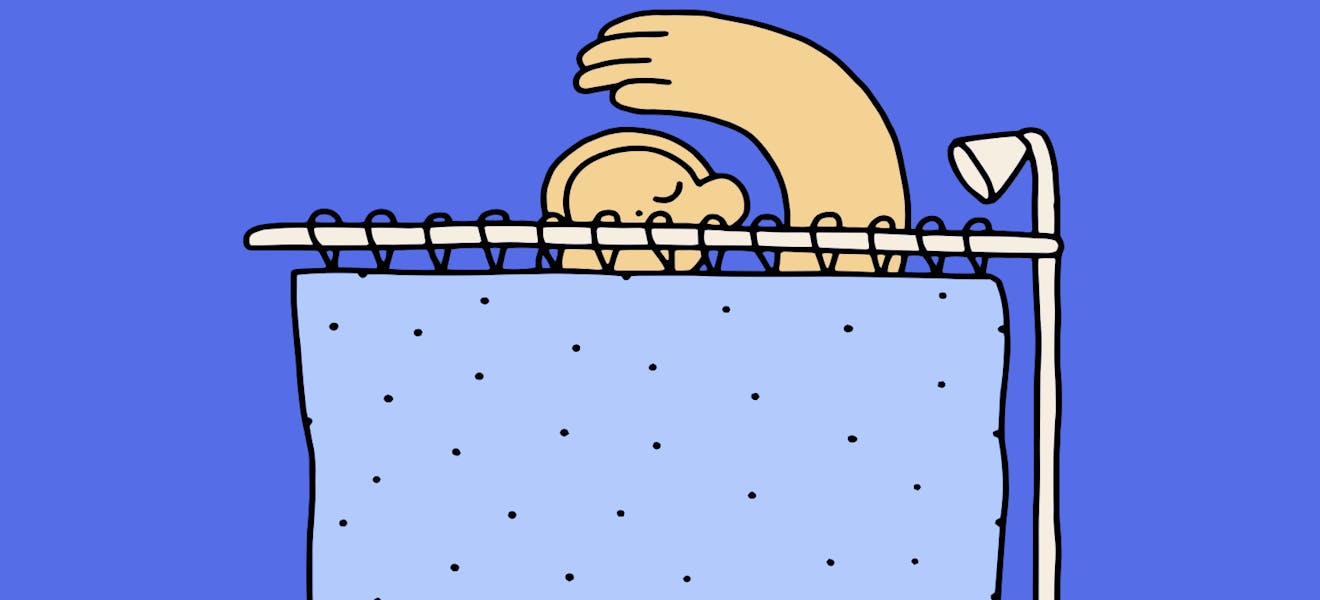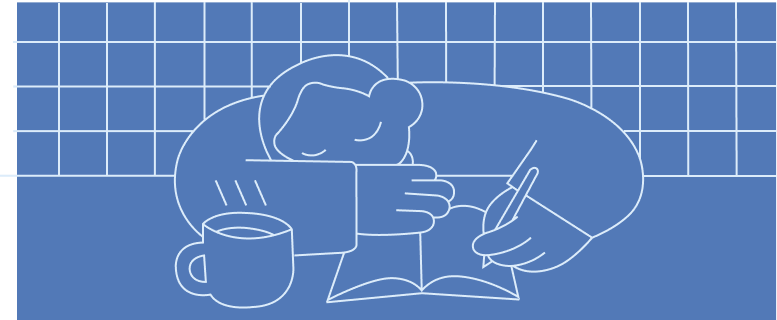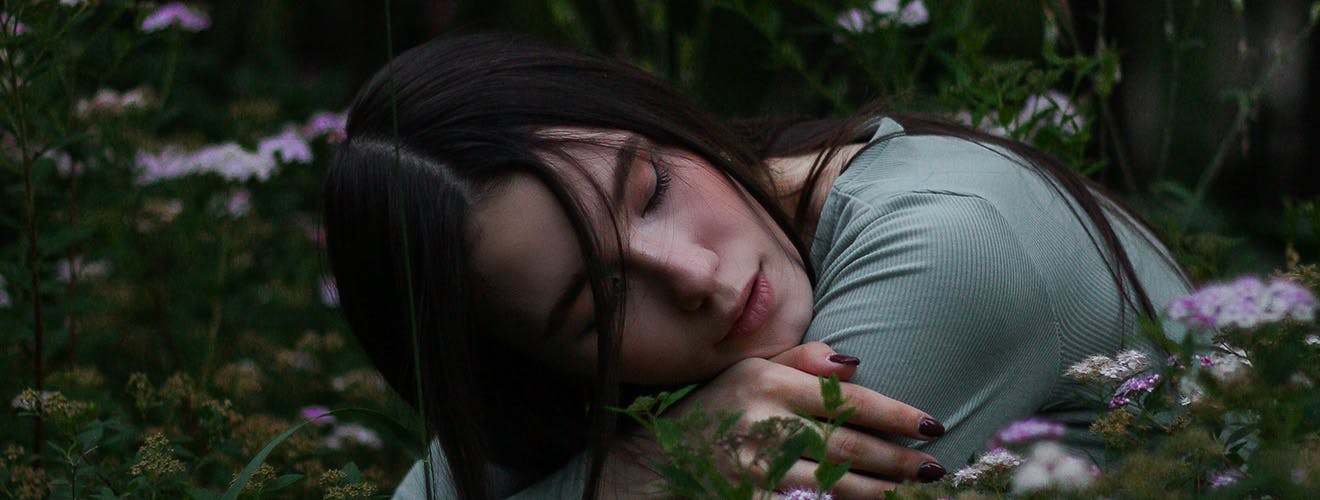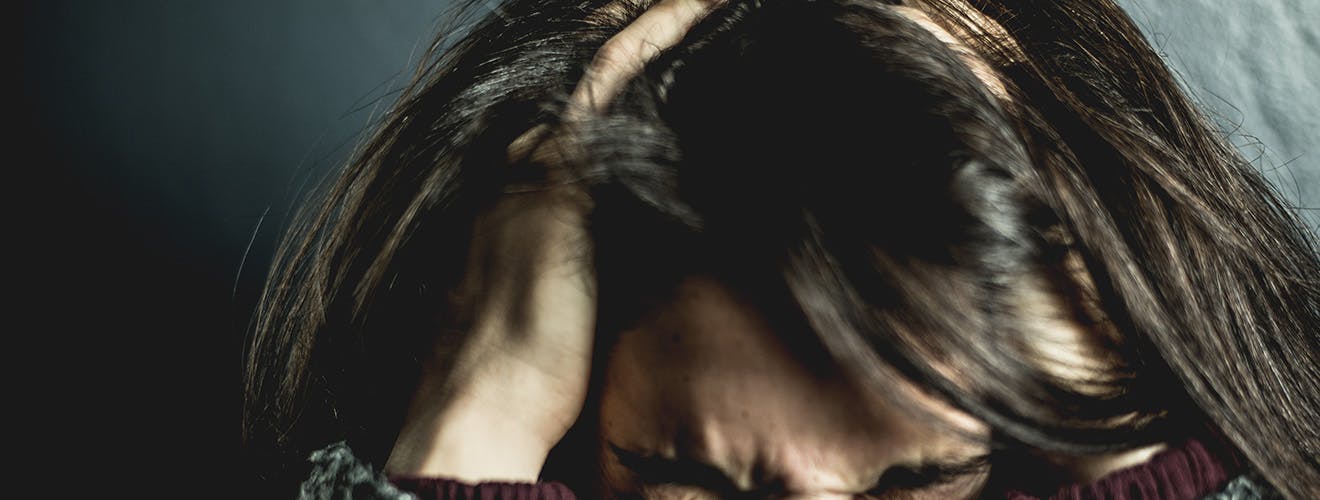Why Do I Twitch When I Sleep? Your Guide to Hypnic Jerks
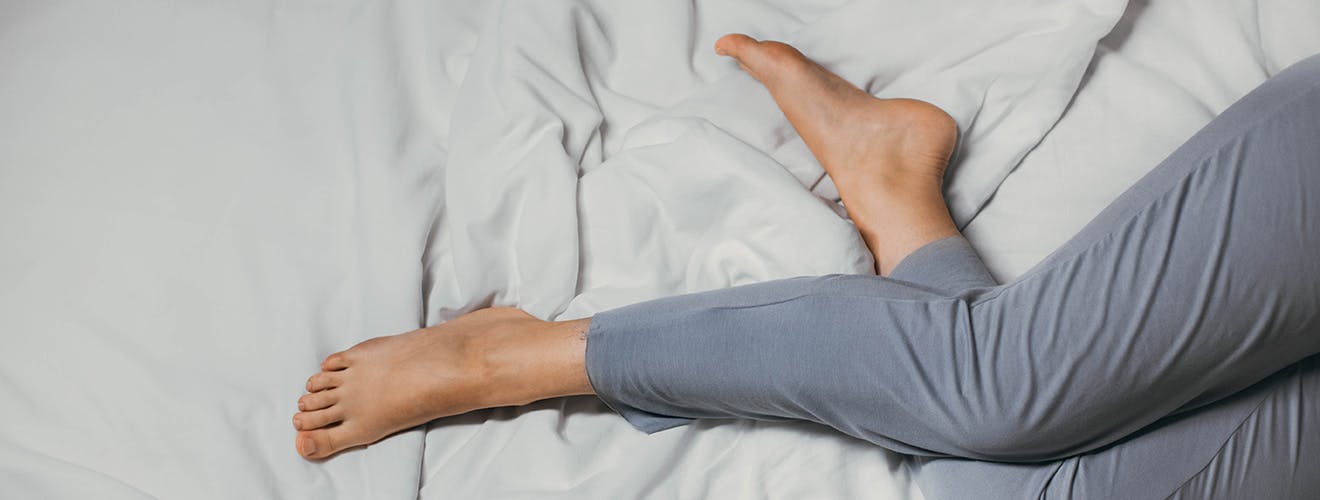
If you've ever experienced random contractions that jolt you awake at night, you've likely experienced hypnagogic jerks. Our sleep quality and duration are impacted by a lot of factors. Stressors, anxiety, poorly planned sleep schedules, and variations in the circadian rhythm can all lead to interrupted sleep. Physical symptoms can also come into play. Read on below to learn more about the phenomenon and find answers to questions concerning why you might twitch while sleeping.
What Is a Hypnic Jerk?
Hypnic jerks or sleep starts are known by many names. Hypnagogic jerks, night starts, sleep twitches, myoclonic jerks, are some other terms they may go by. Hypnic jerks occur when you experience strong, sudden, and brief twitching in sleep, usually when you transition from wakefulness to sleep.
Hypnic jerks are involuntary muscle spasms that can either be completely random or be triggered by certain factors, both physical and psychological. You may experience ‘jumps’ or ‘jerks’ where you wake up from sleep startled or scared.
While these jerks happen to people of all ages, the American Academy of Sleep Medicine noted that the occurrence of these hypnic jerks may be more frequent in adults than in children.
It's not as uncommon as you may think. In fact, research suggests that up to 70 percent of people experience hypnic jerks or contractions. And that only goes for people who remember this happening. With that, it's likely that the phenomenon is much more widespread than reported. It's also believed that hypnic jerks are more frequent in adults than in children.
What Causes Hypnic Jerks?
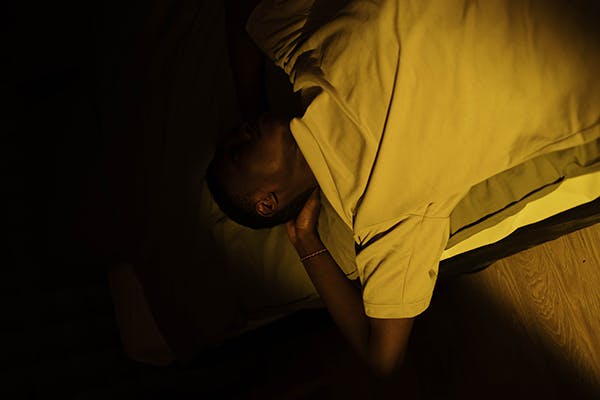
It’s not entirely evident what causes hypnic jerks. While more research is needed, it is generally believed that these external factors can potentially trigger hypnagogic jerks.
Excessive Caffeine
Caffeine consumption can keep you awake at night. In fact, it's widely recommended to avoid caffeine a good six hours before you hit the sack at night as it can significantly impact your sleep schedule and quality. Any coffee consumption after midday can potentially lead to hypnic jerks.
Vigorous Exercise at Night
Physical activity is often thought to help induce sleep. It is believed that tiring yourself out could eliminate stressors and other factors that keep you from falling asleep. However, that observation was limited to workouts during the day only. Late-night exercise can keep your body from relaxing during bedtime, thus keeping you awake and increasing the probability of hypnic jerks.
Sleep Deprivation
Sleep is a need, not a want. Poor sleeping habits and ever-changing sleep patterns can lead to sleep deprivation. People who experience issues with sleeping should look into possible treatments to regulate their sleep-wake patterns. This will give their bodies a better shot at tackling hypnic jerks.
Stress and Anxiety
Stress and anxiety manifest themselves in physical and psychological symptoms. Both of these can impact sleep patterns and quality, which can lead to hypnic jerks.
When you experience stress, you’re more focused on the problem at hand and actively search for ways to combat the growing issues. You do this instead of focusing your energy towards attempting to sleep and relaxing your muscles.
Additionally, the occurrence of hypnic jerks may also be the reason you experience stress and anxiety. It can hinder the transition between wakefulness and sleep.
Are Hypnic Jerks Dangerous?
Not really, no. Hypnic jerks or hypnagogic jerks are involuntary muscle spasms that are generally considered harmless. That said, they can be unsettling to the person who experiences them, and experiencing hypnic jerks can be scary and cause unnecessary stress before bed.
Minor injuries may occur from sudden involuntary movement where you might accidentally kick your partner or an object in the vicinity. But that is the most damage hypnic jerks can do to you physically.
How to Avoid Twitching in Your Sleep
Myoclonus does not require medical treatment from a qualified professional unless of course, it is triggered by the psychological phenomenon or other external factors. To minimize the occurrence of these sudden movements, consider making these changes:
Try Exercising Earlier in the Day
Are you into vigorous exercising but find that it keeps you awake at night? Try to schedule your exercise routine during the day. This will prevent you from disrupting your sleep cycle and patterns.
Exercise has shown to offer both physical and psychological benefits so it would be wise to find a middle ground instead of eliminating it.
Don’t exercise too close to bedtime. If your schedule does not permit working out in the morning, scheduling low-intensity exercises at least 90 minutes before bedtime may give your body ample time to return to normal body temperature, heart rate, and endorphin levels that are conducive to better sleep.
Create a Bedtime Routine
Making changes in your bedtime routine may help tackle issues surrounding myoclonus. Depending upon the intensity and frequency of your hypnic jerks, you may choose to establish a healthy bedtime routine that can help your body relax and eliminate stressors.
Drinking calming teas, reading a book, or listening to soothing music before bedtime may help deal with the sensation brought on by the occurrence of hypnic jerks. Make sure to also stop screen use at least 30 minutes before bedtime.
In addition to switching off the lights, you should also consider sleeping with your blinds shut. Cut off any light or sound triggers.
Breathing Exercises and Meditation
If you wake up due to sleep starts or find yourself unable to sleep because you fear you may experience one, try breathing exercises.
Take deep breaths, inhale, hold, then exhale. Repeat the exercise until you’ve brought your heart rate and breathing to a slower, relaxed pace. This will help reduce stress and induce better quality sleep.
Avoid Caffeine
Stimulants like caffeine and nicotine play a huge role in keeping us awake. So do tea and chocolate. Try to limit the use of stimulants to avoid overstimulation before bed.
To stay on the safer side, limit your caffeine consumption to mornings only. You should also minimize your nicotine levels as much as possible. Steer clear of having a glass of wine before you head to bed, as it can make it difficult for the brain and the body to transition to sleep.
When Might You Want to Consult a Doctor?
Hypnic jerks are harmless. Chances are, they will fade away with time. If, however, you feel that these jerks have significantly impacted your quality of life or are something other than hypnic jerks, you should speak to a doctor to look at alternate treatments.
Conclusion
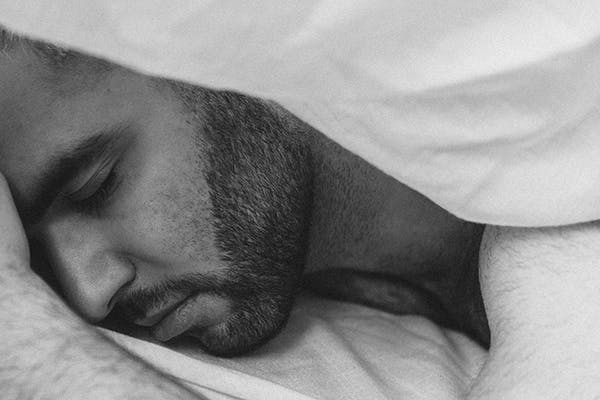
Hypnic jerks are harmless and normal. That said, their occurrence can be minimized by making a few changes in your lifetime. If you’re not keen on making these changes or you notice that they don’t do much to help, consider using Sandland Sleep Supplements. Our supplements offer users clean, restful sleep by eliminating the hangover or ‘high’ feeling that usually accompanies sleep aids.
Sleep starts, or twitching in your sleep, is pretty common. A couple of lifestyle changes can help reduce the frequency of your hypnic jerks.
Twitching in your sleep does not necessarily indicate an underlying medical condition. It is a pretty common phenomenon and generally harmless. That said, you can always visit a doctor to address any lingering concerns.
